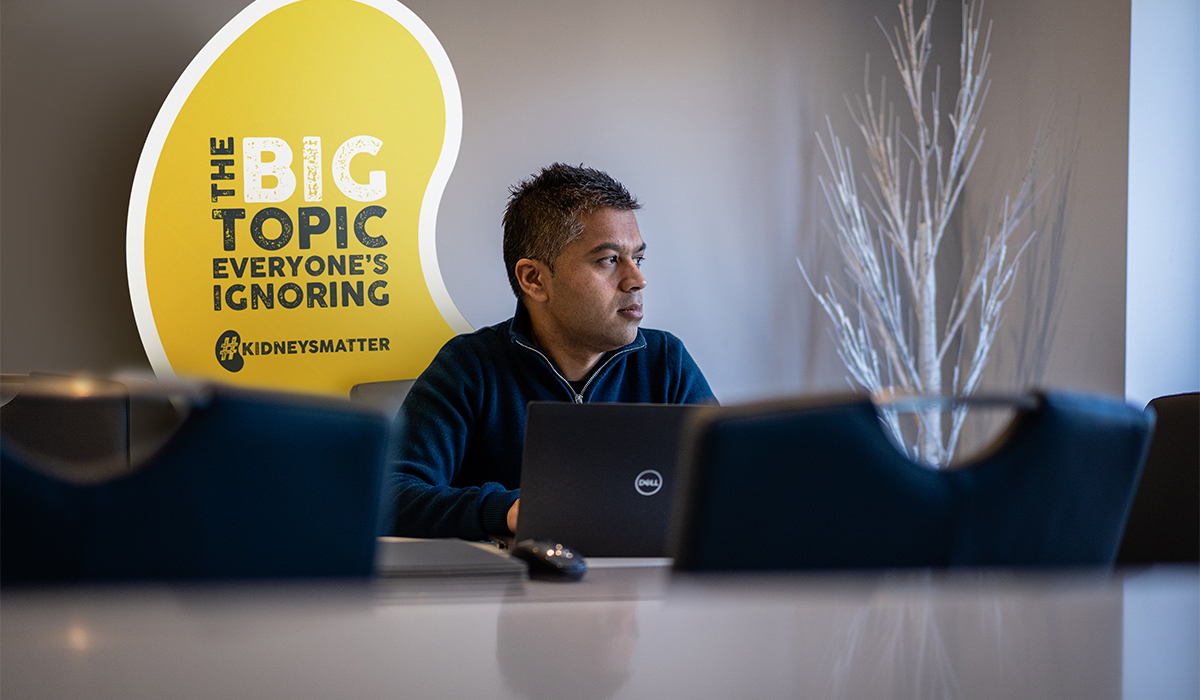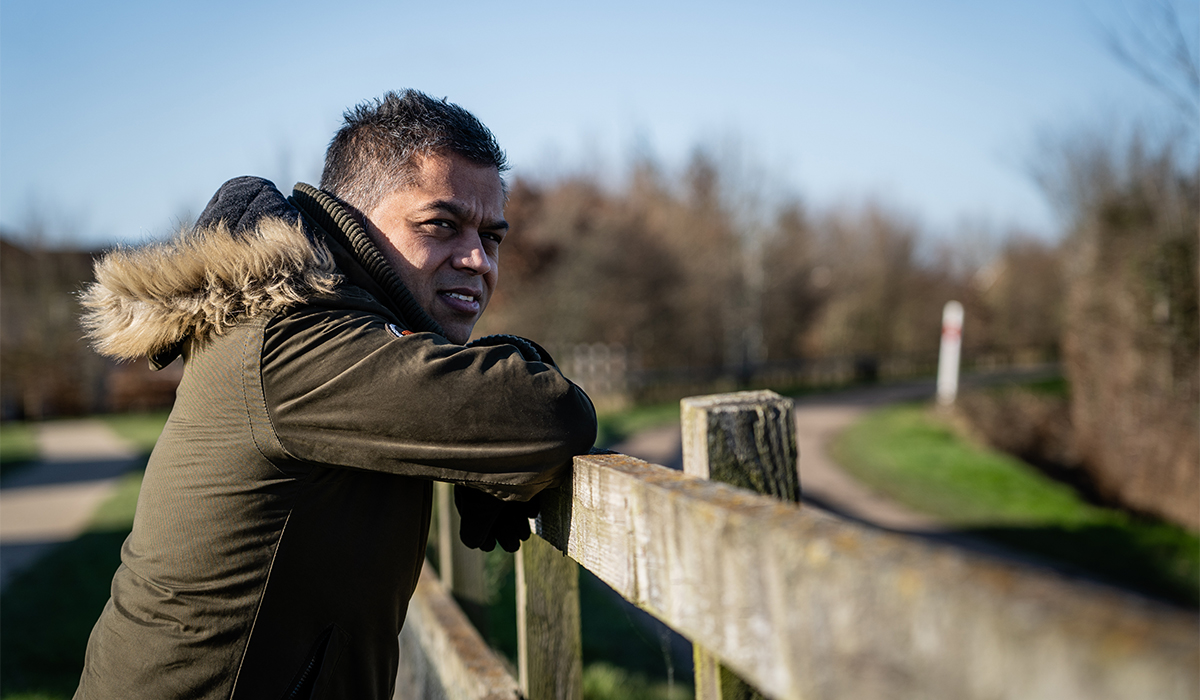

"The risks of kidney disease were never explained to me"
Having been diagnosed with diabetes in his early twenties, Sanjay was managing his condition as best he could until he started experiencing unusual symptoms. After being chronically ill and undergoing a pancreas and kidney transplant, he wants others to be aware of the risks. Read his story below.
I was diagnosed with type two diabetes when I was 22. I was managing it as well as I could while still trying to enjoy my life, but I was put on insulin at the age of 30. I then started to experience some weird symptoms. I had nerve and circulation problems in my feet and fingers. I had problems with my eyes that I had surgery on. Then I was at my sister-in-law's wedding when I noticed my legs had started to swell.
In 2017, I went for a blood test and the doctors said my kidney function wasn't great but nothing to be worried about. They said that if I kept an eye on my diet, I'd probably need a transplant in about five to ten years' time. Then, my kidney function suddenly fell off a cliff. I was diagnosed with chronic kidney disease when my daughter was four and my son was only 11 weeks old.
Impact can be devastating
In December 2018, I was fitted for a catheter and started dialysis in 2019. I lost two and a half stone in weight, was constantly grey and had unbelievable tiredness that made getting out of bed a challenge, never mind going onto dialysis or looking after the kids. The toxins would build up overnight and then I'd be sick in the morning. I'd gone from drinking as much as possible to being restricted to half a litre of liquid a day.
Thanks to an at-home machine and the support of my employer, I could work remotely for a few days a week, but dialysis had a massive impact on all four of us. I had to attach the catheter in my stomach to the machine for eight to ten hours every night. At first, it was hard to get used to the humming noises it made and I was worried about what would happen if I moved which meant I couldn't sleep. My daughter was also scared that the machine was hurting me which meant she wasn't sleeping either. My wife had to get up to deal with her as I couldn't detach myself in certain parts of the dialysis cycle.

We couldn't go on holiday or visit family for long periods because of my treatment. We went away to Portugal once and I had to take my machine in an extra suitcase, have my medication delivered to where I was staying and could only go in the pool for half an hour if I wore a bag over my catheter.
Third time lucky for my kidney transplant
I was on the transplant list the whole time I was on dialysis and then, in the middle of the pandemic, I got a call to say that a donor kidney had become available. After the first two calls, the doctors discovered that the kidneys weren't viable for transplant, which was a huge anti-climax. I was dancing with my daughter in the garden when the third call came.
Although the kidney and pancreas transplant itself went well, I had complications which meant I had to stay in hospital for six weeks. Covid-19 meant I was on my own for most of that time and could only speak to my wife and kids through an iPad.
Even after leaving hospital, it took me about nine months to start to feel normal again. I started a new job in October, but the impacts of my treatment are still very real. I've had counselling as I found it very difficult after my transplant. My wife had to put her feelings aside for the whole time and my kids were really affected, so now I'm prioritising spending as much time with them as possible. I still have check-ups every three months but, fingers crossed, everything seems to be fine at the moment.
If I'd known how kidney disease would have affected me when I'd first been diagnosed with diabetes, then things could have been very different. It's so important that doctors and people with diabetes have that initial conversation about the risks and how managing their diet can help. What you do now can protect your future ten or 15 years down the line, so looking after yourself is key.